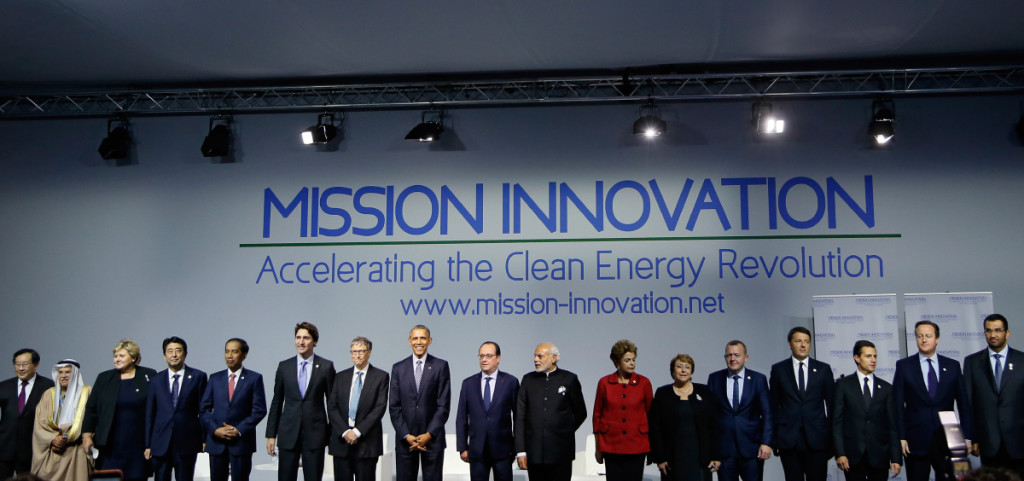A Big Win for Cheap, Clean Energy
ENVIRONMENT, 7 Dec 2015
Bill Gates – TRANSCEND Media Service
30 Nov 2015 – I’m in Paris today with several world leaders for a big announcement on energy and climate change. It is deeply moving to be in this city just two weeks after the horrific attacks here, and I am inspired by the way the French people have persevered in such a difficult time.
Two related initiatives are being announced at today’s event. One is Mission Innovation, a commitment by more than ten countries to invest more in research on clean energy. The other is the Breakthrough Energy Coalition, a global group of private investors who will support companies that are taking innovative clean-energy ideas out of the lab and into the marketplace. Our primary goal with the Coalition is as much to accelerate progress on clean energy as it is to make a profit.
Here’s the thinking behind these two efforts.
httpv://www.youtube.com/watch?v=MzDE8rTRqY4
The world is going to be using 50 percent more energy by mid-century than it does today. That should be good news, especially for the world’s poorest, because right now more than 1 billion people live without access to basic energy services. Affordable and reliable energy makes it easier for them to grow more food, run schools and hospitals and businesses, have refrigerators at home, and take advantage of all the things that make up modern life. Low- and middle-income countries need energy to develop their economies and help more people escape poverty.
But the world’s growing demand for energy is also a big problem, because most of that energy comes from hydrocarbons, which emit greenhouse gases and drive climate change. So we need to move to sources of energy that are affordable and reliable, and don’t produce any carbon.
The renewable technologies we have today, like wind and solar, have made a lot of progress and could be one path to a zero-carbon energy future. But given the scale of the challenge, we need to be exploring many different paths—and that means we also need to invent new approaches. Private companies will ultimately develop these energy breakthroughs, but their work will rely on the kind of basic research that only governments can fund. Both have a role to play.
I have written a paper that makes a more detailed case for investing in energy innovation and explains more about the Breakthrough Energy Coalition. You can download it as a .pdf in English or in French.
I am honored to be a part of this event. It is great to see so many government leaders and investors making these commitments and showing how the public and private sectors can come together to work on big problems. I am optimistic that we can invent the tools we need to generate clean, affordable, reliable energy that will help the poorest improve their lives and also stop climate change. I hope even more governments and investors will join us.
Go to Original – gatesnotes.com.
DISCLAIMER: The statements, views and opinions expressed in pieces republished here are solely those of the authors and do not necessarily represent those of TMS. In accordance with title 17 U.S.C. section 107, this material is distributed without profit to those who have expressed a prior interest in receiving the included information for research and educational purposes. TMS has no affiliation whatsoever with the originator of this article nor is TMS endorsed or sponsored by the originator. “GO TO ORIGINAL” links are provided as a convenience to our readers and allow for verification of authenticity. However, as originating pages are often updated by their originating host sites, the versions posted may not match the versions our readers view when clicking the “GO TO ORIGINAL” links. This site contains copyrighted material the use of which has not always been specifically authorized by the copyright owner. We are making such material available in our efforts to advance understanding of environmental, political, human rights, economic, democracy, scientific, and social justice issues, etc. We believe this constitutes a ‘fair use’ of any such copyrighted material as provided for in section 107 of the US Copyright Law. In accordance with Title 17 U.S.C. Section 107, the material on this site is distributed without profit to those who have expressed a prior interest in receiving the included information for research and educational purposes. For more information go to: http://www.law.cornell.edu/uscode/17/107.shtml. If you wish to use copyrighted material from this site for purposes of your own that go beyond ‘fair use’, you must obtain permission from the copyright owner.
